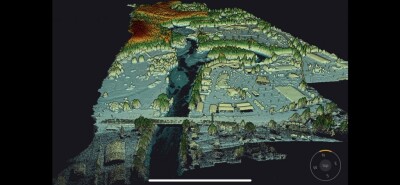After unveiling the Reverb G2 earlier this year, HP saw a positive reaction and strong demand for the virtual reality headset created in collaboration with Valve and Microsoft. As a consumer product, the G2 brings one of the best VR hardware packages to date at a reasonable price point. However, as we’ve seen in the past with HP’s VR backpack and the 1st generation Reverb Pro, the company also wants to provide professionals with new immersive tools for better remote collaboration in design and development workflows. That’s where the HP Omnicept Solution comes in.
To provide VR software developers with an ecosystem to create new hyper-personalized, engaging, and adaptive VR experiences for enterprises, the Omnicept Solution combines an intelligent VR headset, the Reverb G2 Omnicept edition, and a developer-focused SDK into a single platform. According to Jim Nottingham, general manager and global head, Advanced Compute and Solutions at HP, this solution will “open new possibilities for VR development and its impact on enterprise training, remote education, collaboration, research and development, and specialized wellbeing”.
Equipped with eye tracking, pupillometry, heart rate sensors, as well as a face camera, the G2 Omnicept can capture biometric data in real-time, measuring muscle movement, gaze, pupil size, and pulse, and seamlessly transfer it to the HP Omnicept SDK. Through machine learning, the Omnicept allows software developers to uncover actionable insights to adapt to each user’s experience. For example, the platform can discern the level of brain power a user exerts in a VR session – an indicator of how well someone performs under stress and how effective decisions are made. In the future, HP wants to enable accurate re-creation of facial expressions and emotions in real-time and reflect that in the VR experience.
To ensure the capture and transfer of data complies with GDPR and keeps user data confidential, the headset safeguards sensor data at every moment and doesn’t store any data on it.
Some companies are already testing HP’s new solution to help them innovate training procedures. PIXO VR, a company developing extended reality (XR) solutions for enterprise, is using the HP Omnicept SDK and Omnicept headset to provide real-time feedback for virtual reality trainings across high-impact industries like construction, manufacturing, and public safety. To take public speaking training to the next level, Omnicept’s sensor data provides Ovation VR with the extra layer of information needed to understand when users are ready to translate from the virtual to the real world.
Built on the foundation of the Reverb G2, the Omnicept edition features spatial 3D speakers and lenses designed by Valve, offering a 2160×2160 per eye panel resolution, foveated rendering to reduce GPU load and improve image quality within the user’s foveal region, and adjustable IPD. With inside-out tracking from the four cameras built into the headset, the Omnicept headset doesn’t require any external sensors, tracking almost all movement, no matter how extreme. Compared to the Reverb G1, the controllers are more natural and comfortable to hold onto with its smaller and more ergonomic design.
Expected in Spring 2021, the Omnicept solution will be available in four different plans: Core, Academic, Developer, and Enterprise. To learn more about the Omnicept SDK, visit the company’s website, or join HP’s Omnicept Early Access program.


![HPOmnicept_001[1]](https://divcomplatformstaging.s3.amazonaws.com/geoweek.divcomstaging.com/images/6d4974b9265c7a088d7c0e5915e84561.png)



